Big Pharma Is Pushing Prescription Drug Prices Up, Up, Up
Wall Street’s drive for profits is diminishing the benefits to society of new life-enhancing medications for which companies can charge patients hundreds of thousands of dollars per year.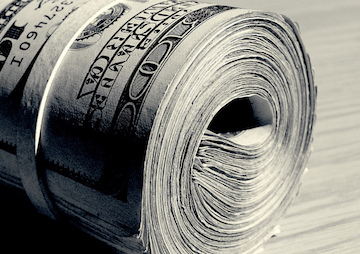 StockMonkeys.com / CC-BY-2.0
StockMonkeys.com / CC-BY-2.0
Wall Street’s drive for profits is diminishing the benefits to society of new life-enhancing medications for which companies can charge patients hundreds of thousands of dollars per year.
Caroline Poplin, M.D., writes at MedPage Today, where open disgust with neoliberalism is unexpected but welcome:
Perhaps the most notorious of the new drugs is Sovaldi, which cures hepatitis C virus (HCV). HCV plagues more than 3 million Americans: for 20 or so years it is asymptomatic, but it silently damages the liver; eventually 20% of patients develop cirrhosis, of whom 20% go on to liver cancer. The prior HCV treatment — interferon and ribavirin — had toxic side effects, with only mediocre results in American HCV patients.
By contrast, Sovaldi, along with a combination product, Harvoni — both oral drugs marketed by Gilead — cure about 90% of patients, in 12 weeks with fewer side effects. Miracle drugs indeed.
The price tag? For Sovaldi, $84,000 for a 12-week course, or $1,000 per pill. Co-insurance on Sovaldi is enough to bankrupt a patient. Prices like these force up insurance premiums for everyone. They crimp state budgets for education and infrastructure.
Gerard Anderson, PhD, of Johns Hopkins University in Baltimore, calculated that most of the recent sharp increase in U.S. drug spending is from the rise of specialty drug prices, not increased utilization. Perhaps most important, many patients who need Sovaldi and its cousins will not get it until their disease is advanced, if then: states and private insurers are limiting these drugs to very sick patients, even though it is not clear that all the prior liver damage is reversible.
There is also big trouble at the other end of the market. U.S. hospitals face continuing, critical shortages of basic, important generic intravenous drugs — antibiotics, cancer drugs, anesthetics, even sometimes normal saline. These drugs require great care in production to keep them sterile, since they are injected directly into the bloodstream. Hospital purchasing groups have driven prices so low that it no longer pays manufacturers to make these products for the U.S. market, particularly if they can use the same facilities to make pricey new IV drugs. So hospitals sometimes ration these indispensable medications also.
And then there is the Turing trick: Martin Shkreli, the CEO of Turing, bought out the sole manufacturer of an old, cheap-but-important generic antibiotic, Daraprim, the best treatment for toxoplasmosis (a lethal infection in immunocompromised patients) and promptly raised the price from $13.50 a tablet to $750. Other manufacturers have shamelessly adopted this low-cost, low-risk, high-profit strategy.
“At the end of the day,” Poplin adds, “markets are not about competition, but power. … Only [Bernie] Sanders has a solution if Congress continues to resist: we must get corporate money out of politics. Pharma may lobby all it wishes, but not with campaign contributions.”
—Posted by Alexander Reed Kelly.
Your support matters…Independent journalism is under threat and overshadowed by heavily funded mainstream media.
You can help level the playing field. Become a member.
Your tax-deductible contribution keeps us digging beneath the headlines to give you thought-provoking, investigative reporting and analysis that unearths what's really happening- without compromise.
Give today to support our courageous, independent journalists.
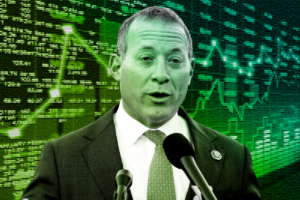
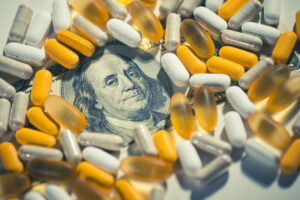

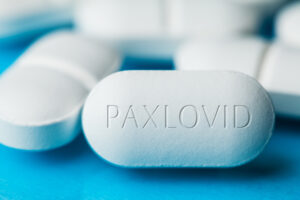
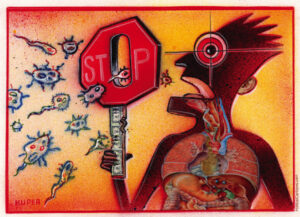

You need to be a supporter to comment.
There are currently no responses to this article.
Be the first to respond.